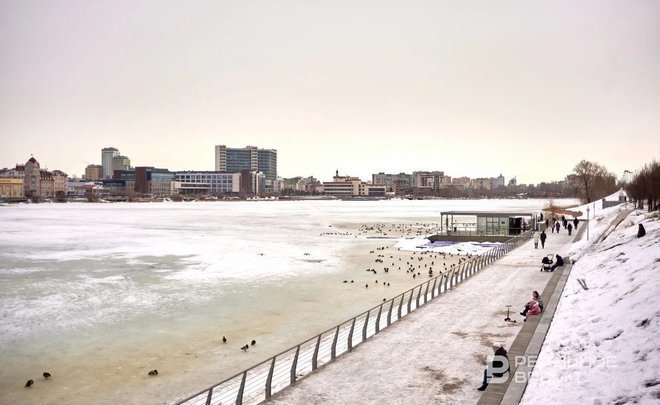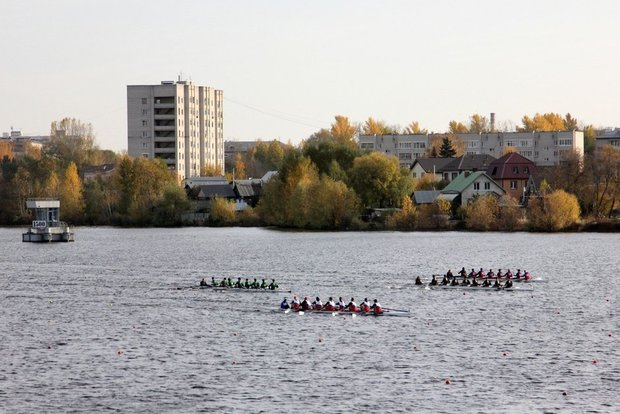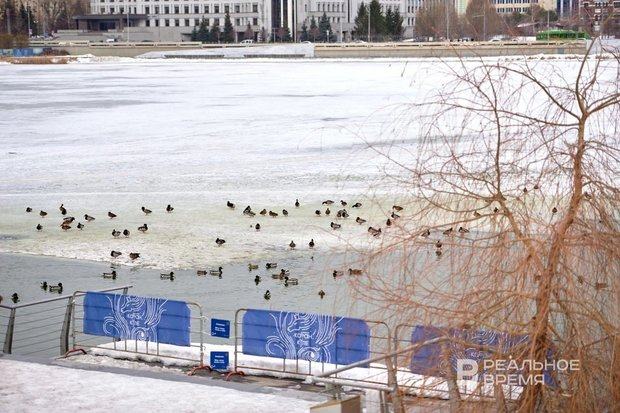Lake Kaban to be protected from harmful industrial sewage
The state of Middle Lake Kaban concerns Tatarstan hydrometeorologists more

The Tatarstan Government is ready to send a petition to the Middle Volga Local Office of the Federal Agency for Fishing offering to assign Lake Kaban the status of fishery basin. Tatarstan Vice Premier Rustam Nigmatullin announced this at a meeting of the Commission for Emergency Prevention and Fire Safety of Tatarstan. In case of approval, nature protecting watchdogs will be able to exercise control over dishonest enterprises discharging sewage to Kaban water bodies. The last mass fish death was in summer 2021. Read more in Realnoe Vremya’s report.
Hydrometeorologists up for Lake Kaban
A civil initiative about establishing a legal protective regime for the Kaban lake system was voiced at a meeting of the Commission for Emergency Prevention and Fire Safety of Tatarstan. However, not environmental activists delivered a speech there like it usually happens but head of the Tatarstan Hydrometeorology and Environmental Inspection Office Sergey Zakharov.
At the end of his speech, he offered the Tatarstan government to turn to the Middle Volga Local Office of the Federal Agency for Fishing offering to assign Lake Kaban the status of fishery basin, which is envisaged by the federal law On Fishing and Conservation of Water Biological Resources. In this case, industrial enterprises won’t be able to discharge sewage to the Kaban lake system in the city without being punished.
It is a cultural heritage site too
Tatarstan hydrometeorologists are mostly concerned about the state of Lake Middle Kaban. According to Sergey Zakharov, this lake is directly connected with the Kuybyshev Water Reservoir where sewage is pumped with the help of pump stations No. 1.
“We make daily observation in Lake Kaban near the water quality control station. But Lake Kaban doesn’t have the status of fishery basin, though it has fishes — European carp, pike, Crucian carp. This doesn’t permit environmental protection watchdogs to take measures against entities that discharge sewage to the Middle Kaban,” said the speaker.

Also, Lake Middle Kaban is a cultural heritage site where amateurs go fishing regularly, fishing competitions are held, he added.
What protection category will the Kaban be given?
At the same time, the Kuybyshev Reservoire is legally protected against discharges because it has the highest fishery basin category, noted Zakharov. He considers Lake Kaban also should be given a protection status analogously. For this, the government has to submit an application to the Middle Volga Local Office of the Federal Agency for Fishing in Samara.
“This organisation has a local commission that can decide to grant the status and permit saving the valuable water body,” the head of the Tatarstan Hydrometeorology and Environmental Inspection Office concluded.
There were taken attempts to legally protect the Kaban, but unsuccessfully.
“We sent petitions, but our resources aren’t enough,” said Sergey Zakharov.
In reply, Tatarstan Vice Premier Rustam Nigmatullin backed this proposal as chair of the Commission for Emergency Prevention and Fire Safety of Tatarstan.
It is noteworthy that federal legislation envisages three categories — the highest, first and second. It depends on several factors, which means the responsibility for discharges will be greater. It wasn’t specified which one was offered to be given to the Kaban. This will probably be determined when writing the petition to the federal agency.

It should be reminded that last time a high-profile mass fish death in Lake Kaban was in summer 2021. Specialists of the Ministry of Environment of Tatarstan ascertained the fact of fish death in Lake Middle Kaban, said the press service of the ministry. Kazan citizens who had complained about contaminated water and dead fishes on the surface were the first to raise the alarm. They suspected that local enterprises “discharged some poison” to the stream: the grass was covered with something white, the lake itself had a lot of dead fishes. But the discharge of sewage wasn’t found.